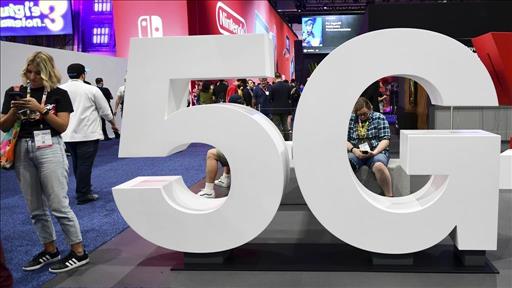
UAE- 5G to create 1.9B subscriptions by 2024
(MENAFN- Khaleej Times) As the UAE leads the 5G race in the GCC with both telecom operators stepping up efforts to expand their subscription base, the trend across the globe is gaining rapid early momentum, prompting Ericsson to forecast an extra 400 million enhanced mobile broadband subscriptions by the end of 2024.
The June 2019 edition of the Ericsson Mobility Report forecasts 1.9 billion 5G subscriptions, up from 1.5 billion forecast in the November 2018 edition, an increase of almost 27 per cent.
Other forecasts have also increased notably as a result of the rapid 5G uptake. 5G coverage is forecast to reach 45 per cent of the world's population by end of 2024. This could surge to 65 per cent, as spectrum sharing technology enables 5G deployments on LTE frequency bands.
According to a recent GSMA report, 5G is on track to account for 15 per cent of global mobile connections by 2025, as the number of 5G network launches and compatible devices ramps up this year. It is calculated that mobile operators worldwide are currently investing around $160 billion per year on expanding and upgrading their networks, despite regulatory and competitive pressures.
Forecasts provided by Ovum show that global mobile connections would total ten billion by 2023. Also, by the end of 2023, global 5G connections are expected to reach 1.3 billion.
A forecast by GlobalData said about 100,000 5G-ready smartphones will be functional in the Middle East and North Africa by the end of 2019. 5G device sales will pick up momentum next year and hit the one million mark, and by 2023 about 16 million 5G smartphones will be operational in the region.
The availability of commercial mobile 5G services in the GCC will be mainly driven by national digital transformation plans, end-users' enhanced mobile broadband requirements and telcos' need for increased network capacity and spectrum usage efficiency, GlobalData said.
UAE telecom operator etisalat had announced that users can now experience the next-generation mobile standard on its network, further igniting the 5G race in the region. On Tuesday, it became the first mobile operator in the Mena to provide 5G coverage inside an international airport at the Midfield Terminal Building in Abu Dhabi's new international airport.
Technology analysts estimate 5G connectivity will boost the GCC economy by $269 billion over 10 years with cheaper, faster Internet access and connecting devices through the Internet of Things.
Communication service providers in several markets have switched on 5G following the launch of 5G-compatible smartphones. Service providers in some markets are also setting more ambitious targets for population coverage of up to 90 per cent within the first year.
Fredrik Jejdling, executive vice-president and head of networks at Ericsson, said 5G is definitely taking off and at a rapid pace. This reflects the service providers' and consumers' enthusiasm for the technology.
"5G will have positive impact on people's lives and businesses, realising gains beyond the IoT and the Fourth Industrial Revolution. However, the full benefits of 5G can only be reaped with the establishment of a solid ecosystem in which technology, regulatory, security and industry partners all have a part to play."
According to the Ericsson Mobility Report, the strong commitment of chipset and device vendors is also key to the acceleration of 5G adoption. Smartphones for all main spectrum bands are slated to hit the market over the course of this year.
As 5G devices increasingly become available and more 5G networks go live, over 10 million 5G subscriptions are projected worldwide by the end of 2019. The uptake of 5G subscriptions is expected to be fastest in North America, with 63 per cent of anticipated mobile subscriptions in the region being for 5G in 2024. North East Asia follows in second place (47 per cent), and Europe in third (40 per cent).
Total mobile data traffic continued to soar globally in first quarter 2019, up 82 per cent year-on-year. It is predicted to reach 131EB per month by the end of 2024, at which time 35 percent is projected to be over 5G networks. There are 1 billion cellular IoT connections globally, a figure that is expected to rise to 4.1 billion by the end of 2024, of which 45 per cent are represented by Massive IoT. Industries using Massive IoT include utilities with smart metering, healthcare in the form of medical wearables, and transport with tracking sensors.
-

Issac John
Associate Business Editor of Khaleej Times, is a well-connected Indian journalist and an economic and financial commentator. He has been in the UAE's mainstream journalism for 35 years, including 23 years with Khaleej Times. A post-graduate in English and graduate in economics, he has won over two dozen awards. Acclaimed for his authentic and insightful analysis of global and regional businesses and economic trends, he is respected for his astute understanding of the local business scene.

Legal Disclaimer:
MENAFN provides the
information “as is” without warranty of any kind. We do not accept
any responsibility or liability for the accuracy, content, images,
videos, licenses, completeness, legality, or reliability of the information
contained in this article. If you have any complaints or copyright
issues related to this article, kindly contact the provider above.


















Comments
No comment